
Is becoming a vegan beneficial or harmful to society?
Veganism is the new “trending” word of the decade!
It's a conflicted world where read news such as:
“Besides lentils and beans, very few protein sources don’t come from animals. One that doesn’t is soy. But soybean production is a disaster for the environment, even putting aside its greenhouse gas emissions, which are substantial (if lower than cows’). Soy is one of the least efficient crops to grow, meaning it accelerates deforestation as large swathes of forest are cleared to make way for it, undermining biodiversity in the process.”
~Financialpost.com
“Asparagus eaten in the UK has the highest carbon footprint compared to any other vegetable eaten in the country, with 5.3kg of carbon dioxide being produced for every kilogram of asparagus, mainly because much of it is imported by air from Peru. That the succulent green stalks have the largest environmental footprint of any of the 56 vegetables they looked at in a study.”
~bbc.com
“We started losing customers because more cafes began to open that were offering vegan options, so a vegan person is not bound to come just here, they can go anywhere. The people who are not vegan, would walk in, look at the menu, see that everything is vegan, and walk out. That was a loss for the business, and we have been losing customers and money for three years now. If I don't make money from this business, I don't have bread to take to my table. 90% of our products were organic so that people could try our philosophy of a healthy diet.”
~Confidentials.com
However, at the same time, we also read news such as:
“Research analysis found that plant-based diets produce 75 percent less heat-trapping gas, generate 75 percent less water pollution, and use 75 percent less land than meat-rich diets — those that include at least 100 grams of meat daily, the equivalent of one steak around the size of a deck of cards.”
~Yale.edu
“According to a climate change report, eating 75 grams of beef - a typical fast-food hamburger - daily for a year emits greenhouse gas equivalent to driving a car over 11,580km - that's equal to driving 7 times the India-Myanmar border for 1643 km long. Compare that to eating 150 grams of beans - twice the beef - daily for a year, which is equivalent to driving a car 150 km only. The study found that 57 per cent of global greenhouse gas emissions come from meat and dairy products whereas just 29 per cent are from plant-based foods''
~ifp.co.in
“Nearly all plant-based foods have a lower environmental impact than meat and dairy, but all food requires some input of resources,” says Dr Hannah Ritchie, senior researcher at the University of Oxford.”
~vogue.in
Now, in a perfect world with no shades of grey, it would have been easy to pick a side however, for now, we’re all still quite far from that.
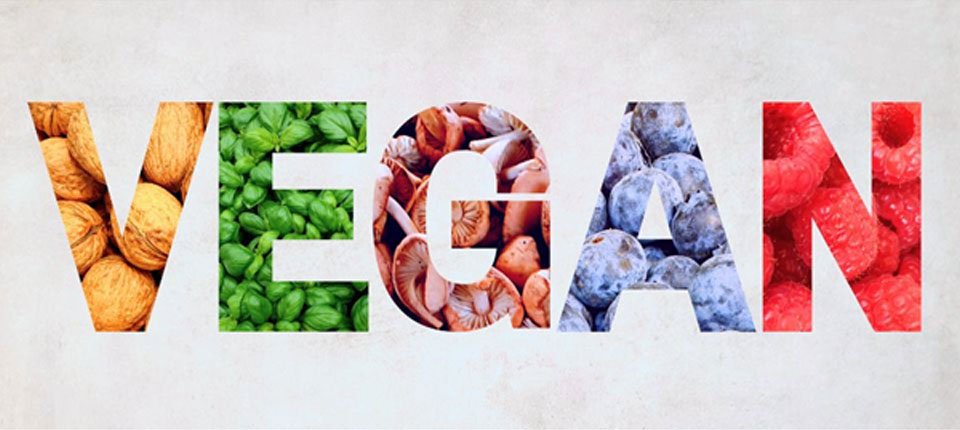
For the sake of understanding if veganism is good or bad for society at large, let’s look at the subtle nuances of how this lifestyle, keeping food in mind, helps and also damages society.
In the end, we’ll let you decide if you want to adopt it or not.
So what is veganism and isn’t it just the same as being a vegetarian?
Veganism is a lifestyle and dietary choice that excludes all animal products and by-products, including meat, dairy, eggs, and honey. It extends beyond diet to include various aspects of life, such as clothing and cosmetics, avoiding products tested on animals or containing animal-derived ingredients.
While both veganism and vegetarianism aim to reduce harm to animals and have ethical motivations, veganism is more comprehensive in its avoidance of animal exploitation. Vegetarianism primarily focuses on dietary choices and may allow for the consumption of certain animal products like dairy or eggs.
So, while there are similarities between the two, veganism represents a stricter commitment to animal welfare and environmental sustainability.
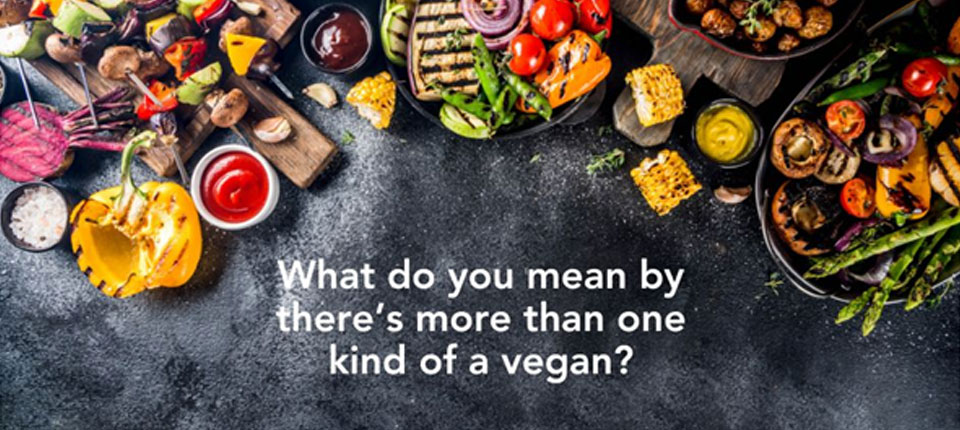
What are the different kinds of vegans in the world?
It might surprise you but there are different kinds. It's not just about not eating meat and animal products!
-Dietary Vegans: These individuals follow a vegan diet, avoiding all animal products like meat, dairy, eggs, and honey, but may not extend their veganism to other aspects of life.
-Ethical Vegans: Ethical vegans adopt a vegan lifestyle due to strong ethical beliefs regarding animal rights and welfare. They avoid all animal products in all areas of life, not just in their diet.
-Environmental Vegans: Environmental vegans choose a vegan lifestyle primarily for environmental reasons. They believe that reducing or eliminating animal agriculture can have a positive impact on the planet by reducing greenhouse gas emissions, deforestation, and water usage.
-Health Vegans: Health vegans focus on the health benefits of a plant-based diet. They adopt a vegan lifestyle to improve their health, lower their risk of chronic diseases, and promote overall well-being.
-Raw Vegans: Raw vegans consume only raw, unprocessed plant foods, believing that cooking destroys nutrients and enzymes. Their diet mainly consists of fruits, vegetables, nuts, and seeds eaten in their natural state.
-Fruitarians: Fruitarians primarily eat fruits, seeds, nuts, and other plant parts that can be harvested without killing the plant. They avoid consuming root vegetables or any plant that requires killing the entire plant to obtain food.
-Junk Food Vegans: These individuals follow a vegan diet but rely heavily on processed vegan foods like vegan burgers, fries, vegan cheese, and other convenience foods. Their focus may not be on health or nutrition but rather on avoiding animal products.
-Flexitarians: Flexitarians are mostly vegetarian but occasionally eat meat or animal products. While not strict vegans, they aim to reduce their consumption of animal products for health, environmental, or ethical reasons.
What is the ideology behind following a vegan diet?
While the idea behind veganism revolves around eliminating animal cruelty and reducing the environmental impact of animal husbandry on our environment, in the Indian context, it can be divided between 2 outlooks; the Traditional and the New Age.
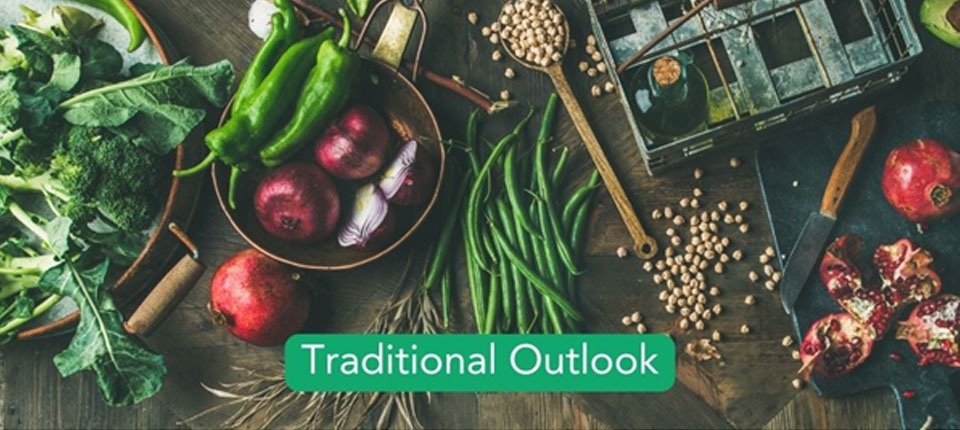
With reference to the article, Veganism in Ancient India: Nurturing Compassion Through Centuries, the Traditional outlook towards veganism is divided as:
-Ahimsa (Non-violence): Inspired by ancient Indian philosophy, traditional vegans adhere to ahimsa, abstaining from harming animals, as outlined in texts like the Bhagavad Gita.
-Cultural Heritage: Traditional veganism in India often stems from cultural practices deeply ingrained in religious beliefs, such as Hinduism and Jainism, where compassion for all beings is central.
-Compassion for Animals: Upholding compassion, traditional vegans view animals as sentient beings deserving of respect and kindness, aligning their dietary choices with this principle.
-Health Benefits: Traditional Indian vegan diets, rich in diverse plant foods like grains, pulses, fruits, and vegetables, have been celebrated for promoting physical health and spiritual harmony.

With reference to the article, The Rise of Veganism: A Transformative Shift towards Compassion, Sustainability, and Personal Wellness, the New Age outlook towards veganism is divided as:
-Environmental Consciousness: With growing awareness of environmental issues, new age vegans choose plant-based diets to reduce their ecological footprint, addressing concerns over deforestation, water scarcity, and climate change.
-Health and Nutrition: Articles authored by nutritionists emphasise the health advantages of plant-based eating, illustrating how new age vegans prioritise nutrient-rich foods to fuel their bodies and enhance overall well-being.
-Animal Advocacy: Reflecting a modern ethos of animal rights, new age vegans advocate for ethical treatment of animals, sharing stories and insights on social media platforms to raise awareness and promote empathy towards all creatures.
-Innovation and Accessibility: Articles highlight the expanding availability of vegan products and culinary innovations, catering to the diverse tastes and preferences of new age vegans seeking variety and convenience in their plant-based lifestyle.
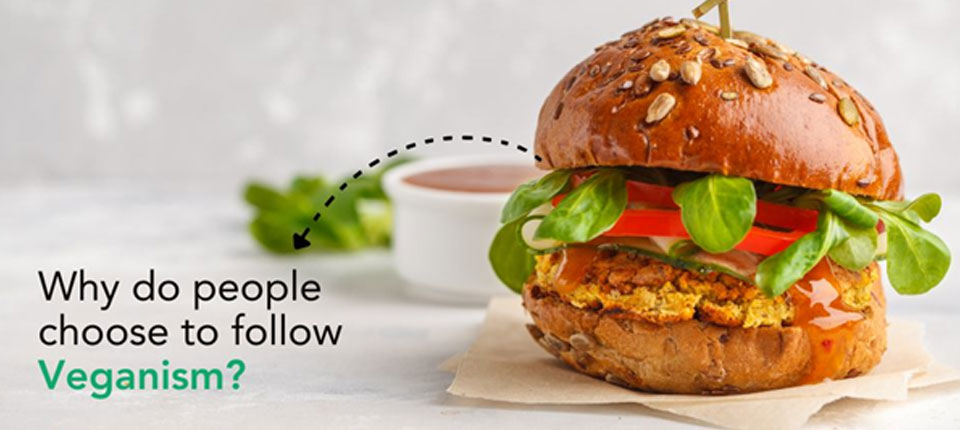
Keeping that in mind let’s look at two crucial factors; the impact and advantages of both on the environment:
Impact of veganism vs meat diets on the environment:
Following Veganism |
Consuming meat and animal products |
Reduced carbon footprint from livestock emissions. |
Increased greenhouse gas emissions from livestock farming. |
Conservation of water resources due to less intensive agriculture. |
Deforestation for grazing land and feed crop cultivation. |
Preservation of forests and habitats by reducing land clearing. |
Water pollution from animal waste runoff and chemical use. |
Decreased pollution from animal waste runoff into waterways. |
Habitat destruction for agriculture, threatening biodiversity. |
Preservation of biodiversity by reducing habitat destruction for agriculture. |
Intensive water usage for livestock farming and feed production. |
Reduced use of pesticides and fertilisers associated with animal farming. |
Soil degradation and erosion from overgrazing and monoculture feed crops. |
Conservation of energy by minimising intensive animal agriculture operations. |
Contribution to oceanic dead zones from agricultural runoff. |
Lower greenhouse gas emissions from reduced methane production. |
Air pollution from livestock waste and methane emissions. |
Less pressure on ecosystems for feed crop cultivation. |
Energy-intensive operations for animal agriculture, including transportation. |
Mitigation of oceanic dead zones caused by agricultural runoff. |
Depletion of natural resources for feed production and livestock rearing. |
Preservation of topsoil and soil fertility by reducing overgrazing. |
Increased use of pesticides and fertilisers for feed crops. |
Reduced reliance on fossil fuels for transportation of animal products. |
Loss of biodiversity due to habitat conversion for agriculture. |
Decreased water usage for livestock farming and feed production. |
Acceleration of climate change through methane emissions from livestock. |
Prevention of deforestation for grazing land and feed crop cultivation. |
Pressure on ecosystems and wildlife due to land use changes. |
Promotion of sustainable land use practices and ecosystem health. |
Strain on freshwater resources from intensive animal farming practices. |
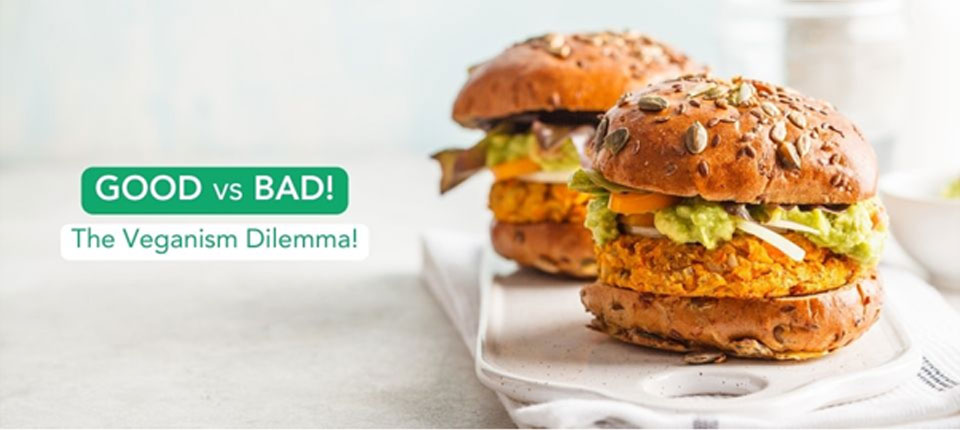
Advantages of veganism vs meat diets on the environment and the human body:
Advantages of veganism |
Advantages of meat-based diets |
Reduced greenhouse gas emissions from livestock farming. |
Lower risk of heart disease and stroke due to reduced saturated fat intake. |
Conservation of water resources due to less intensive agriculture. |
Improved blood sugar control and reduced risk of type 2 diabetes. |
Preservation of forests and habitats by reducing land clearing. |
Lower cholesterol levels and improved lipid profile. |
Decreased pollution from animal waste runoff into waterways. |
Reduced risk of certain cancers, including colorectal cancer. |
Preservation of biodiversity by reducing habitat destruction for agriculture. |
Lower blood pressure and decreased risk of hypertension. |
Reduced use of pesticides and fertilisers associated with animal farming. |
Weight management and potential for weight loss. |
Conservation of energy by minimising intensive animal agriculture operations. |
Higher intake of fibre, vitamins, and antioxidants from plant foods. |
Lower greenhouse gas emissions from reduced methane production. |
Reduced risk of foodborne illnesses associated with animal products. |
Less pressure on ecosystems for feed crop cultivation. |
Improved digestion and bowel regularity. |
Mitigation of oceanic dead zones caused by agricultural runoff. |
Enhanced skin health and reduced risk of acne. |
Preservation of topsoil and soil fertility by reducing overgrazing. |
Increased energy levels and improved mood. |
Reduced reliance on fossil fuels for transportation of animal products. |
Potential for better kidney function and reduced risk of kidney stones. |
Decreased water usage for livestock farming and feed production. |
Reduced inflammation in the body. |
Prevention of deforestation for grazing land and feed crop cultivation. |
Reduced inflammation in the body. |
Promotion of sustainable land use practices and ecosystem health. |
Better overall health outcomes and longevity. |

What does the world of dieticians and nutritionists have to say about following any exclusively plant-based diet:
Well, yet again, there are conflicted views here. The ones that support it have this to say:
-Nutrient-Dense: Plant-based diets are rich in essential vitamins, minerals, and antioxidants, which support overall health.
-Heart Health: These diets are associated with lower risks of heart disease due to lower intake of saturated fats and cholesterol.
-Weight Management: Higher fibre content helps in weight management and can lead to weight loss.
-Diabetes Management: Improved blood sugar control and reduced risk of type 2 diabetes are noted benefits.
-Cancer Prevention: High intake of fruits, vegetables, and fibre may lower the risk of certain cancers.
-Lower Inflammation: Plant-based diets are linked to reduced inflammation, which can decrease the risk of chronic diseases.
-Digestive Health: High fibre content promotes better digestion and regular bowel movements.
-Environmental Benefits: These diets have a lower environmental impact, reducing carbon footprint and conserving resources.
-Longevity: Some studies suggest that plant-based diets may contribute to longer life expectancy.
-Improved Kidney Function: Lower risk of kidney stones and better kidney health are often reported.
The ones that do not agree to the ideology have this to say:
-Nutrient Deficiencies: Risk of deficiencies in vitamins B12 and D, iron, calcium, and omega-3 fatty acids if not properly managed.
-Protein Intake: Concerns about adequate protein intake, especially for athletes and highly active individuals.
-Bone Health: Potential for lower bone density due to reduced intake of calcium and vitamin D.
-Digestive Issues: High fibre content can cause digestive discomfort in some individuals.
-Accessibility and Cost: Access to a variety of plant-based foods can be limited and sometimes more expensive.
-Complex Meal Planning: Requires careful planning to ensure all nutritional needs are met, which can be challenging for some.
-Cultural and Social Factors: Social dining and cultural food practices can be complicated by strict dietary restrictions.
-Bioavailability of Nutrients: Some nutrients in plant foods are less bioavailable compared to their animal-based counterparts.
-Potential Over-Reliance on Processed Foods: Some may rely on processed vegan foods, which can be high in unhealthy additives and sugars.
-Personal Preference and Satisfaction: Not everyone may find a plant-based diet satisfying or enjoyable, impacting long-term adherence.
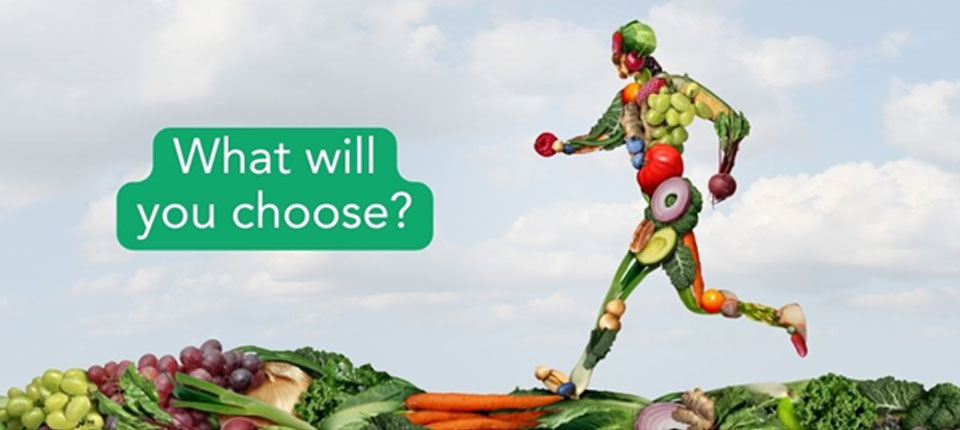
Now that you have all the facts and figures, we’ll let you be the judge.
Is Veganism good for society or not?
If you had to follow it, would you choose a complete plant-based diet plan or a hybrid model?
We’re always here for you with a personalised meal plan whenever you decide!